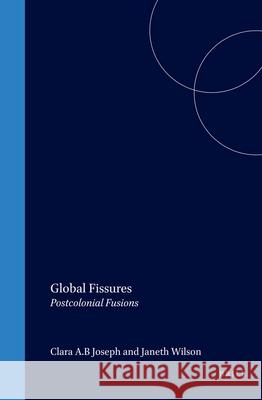Global Fissures: Postcolonial Fusions » książka
Global Fissures: Postcolonial Fusions
ISBN-13: 9789042020184 / Angielski / Twarda / 2006 / 326 str.
The essays in this volume examine the tensions between two major political and intellectual structures: the global and the postcolonial, charting the ways in which such tensions are constitutive of changing power relations between the individual, the nation-state and global forces. Contributors ask how postcolonialism, with its emphasis on cultural difference and diversity, can respond to the new, neo-imperialist imperatives of globalization. Signalling the discursive grounds for debate is the fissures/fusions title, suggesting alternative categorizations of stereotypes like 'global homogenization' and 'postcolonial resistance'. Interwoven are considerations of the intellectual or writer's position today. Literary texts from a wide range of countries are analysed for their resistance to global hegemony and for representations of manipulative power structures, in order to highlight issues such as environmental loss, nationality, migrancy, and marginality. Specific topics covered include 'westernizing' the Indian academy, ecotourism and the new media of computer technology, the corporatization of creativity in 're-branding' New Zealand (including film), and the hybrid forms of Latin American photography. Writers discussed include Chinua Achebe, Samuel Beckett, Hafid Bouazza, Bei Dao, Mahmoud Darwish, Witi Ihimaera, James Joyce, Yann Martel, Rohinton Mistry, Ellen Ombre, Michael Ondaatje, George Orwell, Arundhati Roy, Salman Rushdie, and Edward Said. Different essays stress the hegemony of global networks; the technological revolution's revitalizing of niche marketing while marginalizing postcolonial resistance; the implications of the internationalization of culture for the indigene; and the potential of cultural hybridity to collapse cultural hierarchies.











